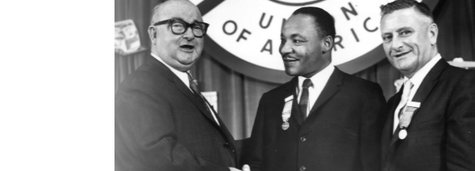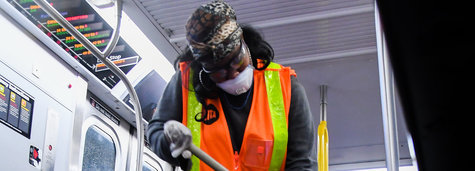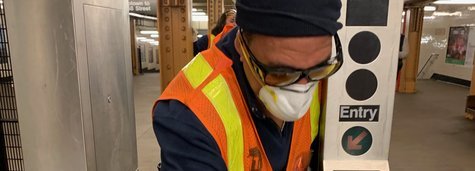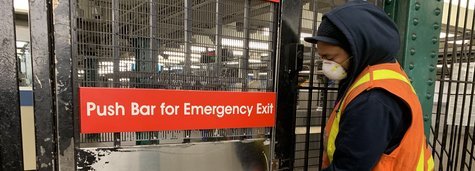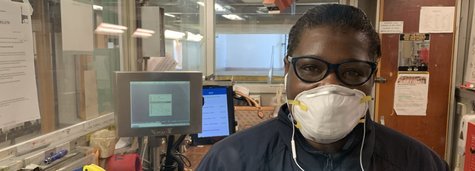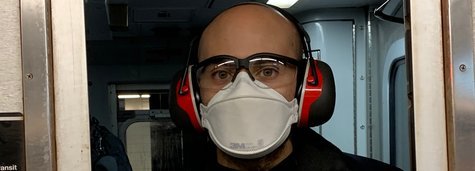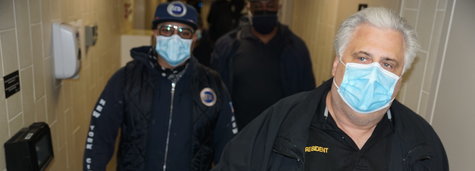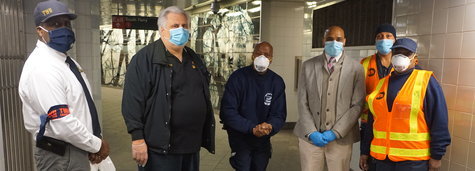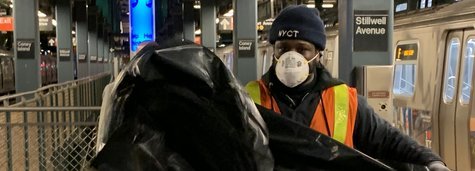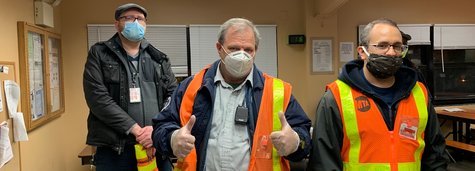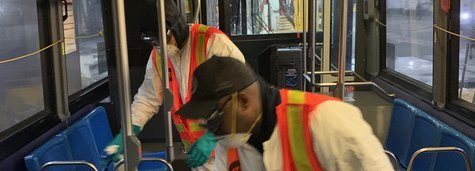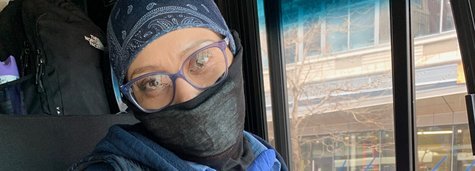Union Foils MTA Plan to Cut Lunch Relief
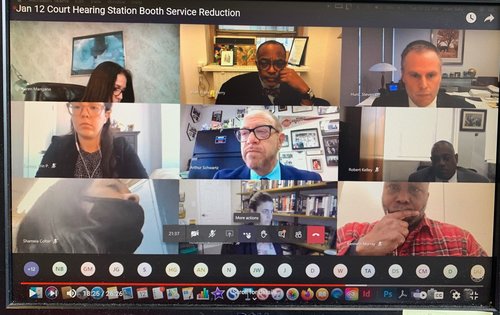 As the New Year dawned back in January, Transit dropped the hammer on the Stations Department. A pick scheduled for later that month would end approximately 150 lunch relief positions throughout the system – full-time jobs that would now disappear. Instead of having a relief worker come to the booth to cover customer service for the break, Station Agents were to be instructed to simply lock up and leave.
As the New Year dawned back in January, Transit dropped the hammer on the Stations Department. A pick scheduled for later that month would end approximately 150 lunch relief positions throughout the system – full-time jobs that would now disappear. Instead of having a relief worker come to the booth to cover customer service for the break, Station Agents were to be instructed to simply lock up and leave.Newly appointed Stations VP Robert Kelley had already faced down management in an arbitration hearing over gain sharing and lunch relief, and knew this was coming. The union had won gain sharing, which allowed for cash payments to Station Agents who did not take lunch. But for those S/A/s who took lunch, the MTA’s answer was simply not to replace them.
Kelley went to TWU Local 100 President Tony Utano, asking him to engage longtime union attorney Arthur Schwartz to stop the pick on the grounds that the MTA had not followed a provision of the NYS Public Authorities Law, which required public hearings when a substantial reduction in public services was contemplated.
The MTA said, first off, that the booth closures weren’t a significant reduction in access and safety – and that no public hearings were needed. Wrong answer.
At the Union’s direction, Mr. Schwartz filed suit in NYS Supreme Court to stop the pick, with Brother Kelley, Congressman Adriano Espaillat, and Michael Schweinsberg, President of the 504 Democratic Club, an association comprised of, and advocating for, persons with disabilities, as plaintiffs.
At the first hearing before Judge Franc Perry on Friday, January 15th, much to the MTA’s displeasure, the Judge refused to grant their motion to dismiss. Instead, the Judge asked for more time to examine the issue.
In a statement, Union President Tony Utano said: “Crime is up across the city, and to take transit workers out of their jobs and leave stations totally unmanned for even a few hours a day is unconscionable.” We presented cases where Station Agents had called police to stop crimes in progress.
Attorney Schwartz noted that the time booths would be unstaffed would be significant – nearly 1500 hours per week over the system. Our court filing stated: “The TA plans to close the booths fully or partially, and eliminate employee presence in subway stations, amounts to a failure to protect the safety of the riding public, without the requisite public hearings. Criminal activity, which has been on the rise in the subway system, particularly violent crimes, will take place outside the view of a TA employee; and emergency medical treatment will become far less accessible.”
A final hearing before Judge Perry on January 28 settled the issue: He ruled that the MTA may not modify the existing lunch relief policy, and thus the pick, which would have eliminated the jobs, was cancelled.
MTA lawyers had argued in court that cutting the token booth jobs would be a “minor inconvenience.”
Perry disagreed. “There is no such thing as a “mere” closing or that a closing is a “minor inconvenience,” because any disruption caused by the NYCTA or MTA has the potential to severely impact the thousands of customers/riders who rely on the subway system as their only mode of transportation,” he wrote in his decision.
As soon as the court ruled, VP Kelley conducted behind the scenes negotiations with NYCT President Sarah Feinberg and David Santoro, then Chief Officer of Stations. Management agreed not to hold the public hearings which would jeopardize the lunch relief jobs, and the Union agreed to move forward with further negotiations to create the “Station Agent of the Future” program, bringing new tech to enhance the jobs of the Station Agents now that many riders are using the MetroCard Vending Machines and the OMNY tap and swipe card to access the system.
“I persuaded management to stand down,” Kelley said.

